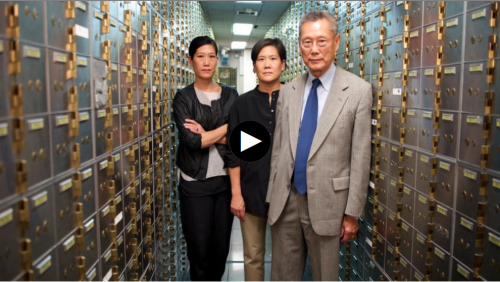"Abacus: Small Enough to Jail" and Non-Traditional Underwriting Resources
Written by Elizabeth M. Young LaBerge, Senior Regulatory Compliance Counsel
This past week, my husband and I were on vacation in Toronto, Ontario, attending the Toronto International Film Festival. We had a tremendous time. One film we saw, and were both very excited about, was the world premiere of the documentary Abacus: Small Enough to Jail.
The film chronicles the legal struggle of family-run Abacus Federal Savings Bank, the only U.S. bank indicted for mortgage fraud related to the 2008 financial crisis. It was a gripping and sobering reminder of the damage caused by irresponsible lenders, the unfair legal burden on small financial institutions, and for me, most critically, the importance of credit unions, their mission and their role in their communities.
Abacus: Small Enough to Jail will have its U.S. premiere at the 54th New York Film Festival in October. It was produced by PBSâÂÂs Frontline and will air in early 2017. I'd recommend it to everyone.
One of the areas that got Abacus FSB in trouble was insufficient documentation when underwriting loans. Abacus FSBâÂÂs customers are frequently cash-only businesses and credit-invisible borrowers, especially Chinese immigrants. Credit unions often have similarly situated members, so, as a reminder, below are some resources for credit unions with similar memberships:
- NCUAâÂÂs April 2016 report Serving the Credit Invisible discusses loan application evaluation and underwriting programs for members who have little or no credit history.
- NCUAâÂÂs Letter to Credit Unions 10-CU-01 and its enclosure, Supervising Low Income Credit Unions and Community Development Credit Unions also contains useful discussion. The guidance describes alternative sources of funding, common characteristics of borrowers for LICUs and CDCUs, and how to properly credit risk these loans.
- NCUAâÂÂs Letter to Credit Unions 05-CU-01 regarding supervising CDCUs and its enclosed white paper: Supervising Community Development Credit Unions â Balancing Their Mission and NCUA's Regulatory Responsibilities, may also be helpful. The enclosure describes for examiners the non-traditional underwriting practices of CDCUs due to the modest means and unique circumstances of their members. The white paper discusses the need to verify and document non-traditional income.
- FFIEC BSA/AML Examination Manual section on Cash-Intensive Businesses.
- NCUAâÂÂs December 1, 2015 webinar entitled Unique Challenges and Opportunities Servicing Hispanic Credit Union Members which discusses several issues in serving immigrant populations with unusual documentation and underwriting needs.
- NCUAâÂÂs Legal Opinion Letter 05-1219 discusses when it is permissible to underwrite an MBL using cash flow as collateral.
- NCUAâÂÂs Letter to Credit Unions 04-CU-10 discusses underwriting MBLs made to self-employed borrowers.
- NCUAâÂÂs Letter to Credit Unions 99-CU-05 on risk-based lending.

